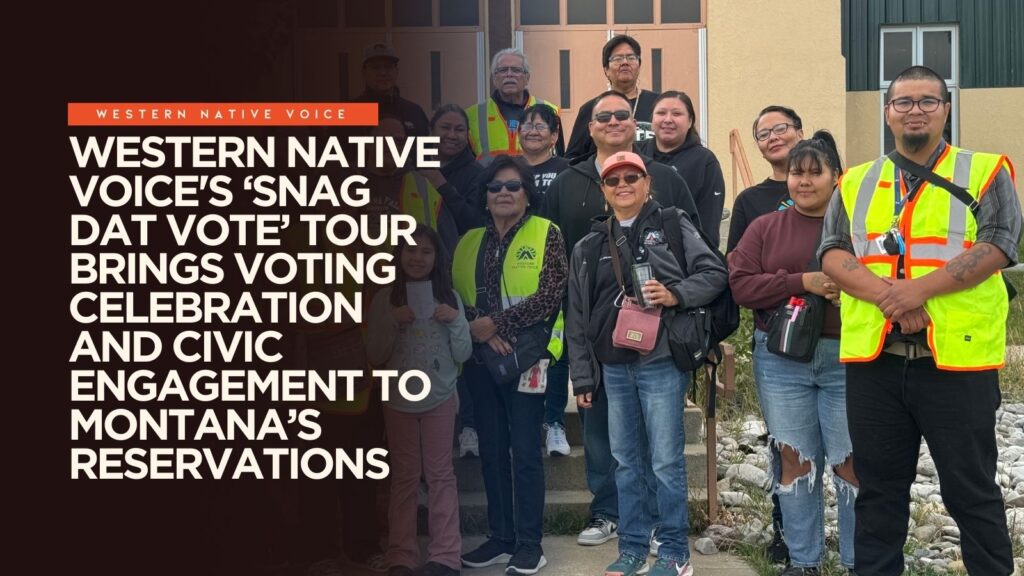
MONTANA — In a sweeping campaign to galvanize voter turnout across Montana’s Native communities, Western Native Voice concluded its “Snag Dat Vote” tour, a two-day voter education and engagement event that reached every Montana reservation and the city of Great Falls. At a time when Native voters face unique barriers to participation, the tour blended community gatherings, informational sessions, and entertainment to empower Native communities with the tools and knowledge to participate in the 2024 election.
Research highlights the effectiveness of grassroots organizing, particularly when it is community-centered. Studies on relational organizing, a strategy that leverages interpersonal relationships, show it can increase voter turnout by up to 11% among communities that often face additional voting barriers (Union of Concerned Scientists, 2023; Progressive Turnout Project, 2021).
Each tour stop’s second day kicked off with Western Native Voice’s field team canvassing directly in the community, engaging residents to encourage voter registration and answer questions about the upcoming election. Through these face-to-face interactions, the team connected with hundreds of voters and collected over 300 new registrations across all stops, underscoring the impact of direct voter education and engagement in fostering civic participation.
“Our Field Team worked tirelessly in the lead-up to the October 7th registration deadline, securing 328 new voter registrations during the tour,” said Sami Walking Bear, Outreach and Field Director. “We canvassed over 500 doors, sharing election information and offering assistance to voters needing help with ballots or transportation to the polls.”
Each evening culminated in a high-energy celebration, headlined by Native comedians and musicians whose performances underscored the importance of the Native vote in shaping Montana’s future. The shows fostered a vibrant, inclusive environment that reinforced the significance of civic participation, reminding attendees of their role in creating positive change.
Western Native Voice’s approach aligns with these findings, highlighting the value of connecting people not only to voting resources but also to each other.








